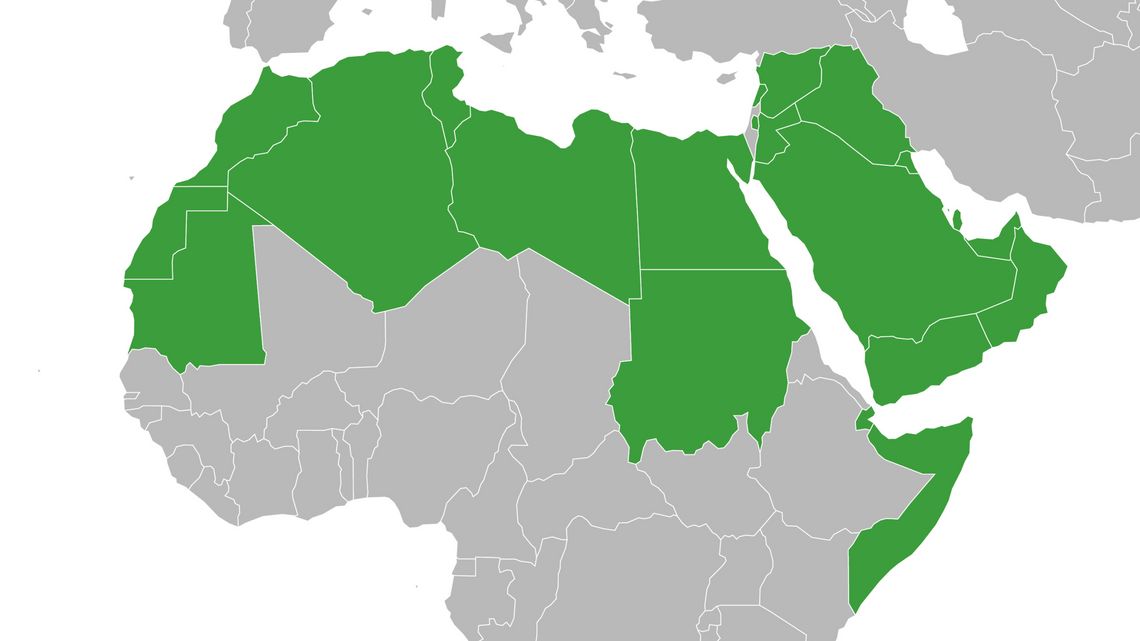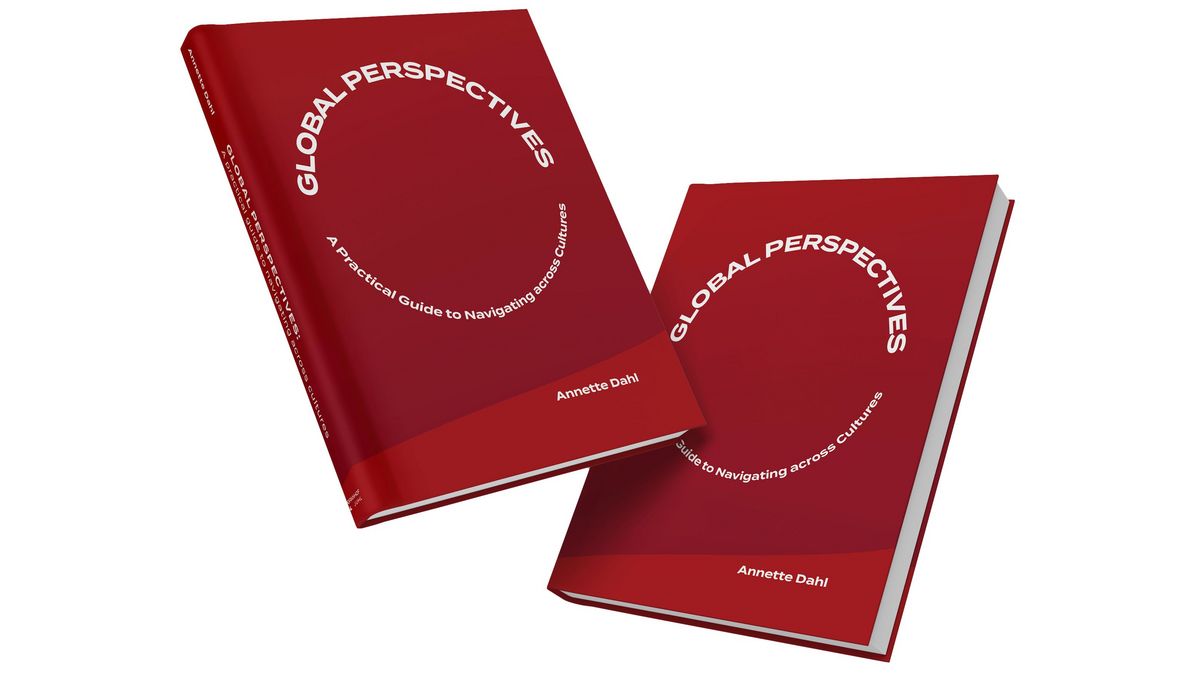
Answers to 6 Questions About Working With Colleagues and Business Partners From the Arab World
Are you working with business partners, colleagues or managing a team in the Middle East or North Africa? Find out how you can develop your leadership, communication, and relationship building strategies for succeeding in the Arab world.
What is the Arab world?
How important are relationships when doing business in the Arab world?
How can I effectively communicate with my business partners and colleagues from the Arab world?
How can I manage effectively?
These are some of the questions we asked our trainer, Sharjeel Moutier, to answer below.
Sharjeel is of Indian origin and a French national, who was brought up in Saudi Arabia. He has lived and worked in more than 10 countries around the world and regularly works internationally between Europe and Gulf countries like UAE, Qatar, and Oman.
He is an experienced global advisor, trainer, and coach, implementing international development plans and developing the global leadership skills of senior management. For C3, Sharjeel delivers coaching and training on various Middle Eastern and North African countries, in addition to trainings on France and India.
1. What exactly is the Arab world and what competencies will help me navigate the region?
First of all, Arabs are an ethnic group whose first language is Arabic.
The countries typically viewed as part of the region are the members of the Arab League, an organization based in Cairo, Egypt. There are 22 nation members (2021) from North Africa to the Arabian Gulf.
These countries share a similar cultural background, along with a lot of diversity in languages and dialects spoken, religions, clothes, and political systems.
Generally speaking, the region can be divided into three groups. With this said, the following characteristics are broadly drawn to get you started on how to navigate the Arab world.
One area is North Africa. This includes Algeria, Morocco, Tunisia, and Libya.
Their education systems have been very much French-influenced. So, people in this region usually delight in long intellectual discussions picking on things for the fun of it. Technical knowledge and a fondness for debate for the sake of discussion would do well here.
The Gulf region is another. This includes Saudi Arabia, Qatar, Kuwait, Bahrain, Oman, and United Arab Emirates.
Many of these countries have plenty of expats. But, if you are dealing with the government as a client, it's often very traditional. You may find it different compared to working with private companies.
Then, there are the Arab countries like Jordan, Syria, Iraq, etc. In these countries, you may find systems are vulnerable to change due to present or past conflicts.
Having good people skills is essential for success in the Arab world. Relationship building/social skills are essential for success along with excellent communication skills. Other skills that are very helpful may include but not be limited to the ability to anticipate, a flexible approach to time orientation, and patience along with decisive leadership.
2. How important are relationships when doing business in the Arab world?
Relationships are essential to doing business in the Arab world. You cannot expect work to get done without them. Mostly what you get depends on how good your relationships are.
In Denmark, for example, there is often a high degree of trust, which means if I ask you to do something, I trust you to do it and the responsibility is on you to tell me if you can't do it. Often competence is more important than trust. This is all without needing to know much about each other.
In the Arab world, most people trust people they know. Trust is more important than competence.
This means it is important to find ways to build and strengthen relationships. If you are posted locally, have lunches together (hot food). If you are collaborating at a distance, call just for the sake of having a chat with your business partners and colleagues.
In your local dealings add in around 10% of time to build relationships as it will pay off in the long run. These relationship building gestures develop trust.
Keep in mind there is no concept of private space in the Arab world. If you translate privacy into Arabic, it would literally mean being alone.
When you build relationships, you share things on a personal level, but you don't have to give all the details. What is appropriate is basically a mix of what you would share on Facebook and LinkedIn.
If I get asked an uncomfortable question, the best approach is to deviate from answering questions directly. So, you will know when topics are off limits when the answer does not really answer the question. This works both ways. You only need to share what you are comfortable with.
If you are a woman, you might notice there is less emphasis on building close relationships with your male counterparts. Men in the Arab world tend to expect more relationship building with men than they do with women. Women are known to be very effective in negotiations for this reason.
Another important factor is saving face or preventing embarrassment when relating with others in the Arab world. Arab partners and colleagues want to keep their relationship with you as intact as possible while avoiding embarrassment.
When something goes wrong, for example, the response from your Arab partner is usually to minimize the problem. And, it may be better to place the blame elsewhere initially than communicate the actual situation at hand.
For example, one day I accidentally bumped into a car ahead of me at a stoplight. We both got out of the car, and the first thing the driver said was, “My brother, you must’ve been thinking of your family.” I said, “Yes, of course” and we figured it out.
So, try not to focus on the reasons things went wrong and focus on building relationships with your business partners and colleagues to find solutions.
3. How can I effectively communicate with my business partners and colleagues from the Arab world?
Communication is very contextual here. People tend to talk around things before coming to the point.
There are 22 different ways to say “yes” in Arabic. Yes, does not always imply yes. Saying explicitly “no” in the Arab world is considered rude because relationships are more important.
So, if you ask close ended questions, most people would respond with “yes,” which may reflect politeness or “I am listening to you” but rarely “yes” as in an explicit “yes” as observed in the West.
So, if you’re asking your Arab colleague, “Are you free at 4 o’clock on Friday?” This is a close ended question. Your colleague might respond with a “yes,” which may not mean explicitly “yes,” to avoid saying “no” if they are busy then.
The best approach is to start with open ended questions and zero in on what is going to happen. Instead, you can ask, “What’s your plan for Friday afternoon?” From there, you can narrow down when your colleague has free time for a meeting.
Another strategy to communicate your needs in a situation with your Arab business partners is to explain your needs and limitations and listen patiently for a response or suggestion.
Another important thing to know is that nobody likes to deliver bad news as it implies loss of face. So bad news is often minimized and good news exaggerated. Being patient by listening, along with a lack of strong reaction initially before you have all the details, is usually helpful.
As a rule of thumb, divide good news by three and multiply bad news by three.
4. What does leadership look like in the Arab world?
Most of the organizations are top to bottom.
The top-level leaders will focus mainly on strategic decisions like partnerships, for example, and less on operations. This means, typically they lead through delegation and have someone with technical knowledge to advise them.
When working with governments and crown princes, for example in the Gulf, they may have a very large team of advisors. Decisions are made by the senior leaders only once he/she has taken into account all the necessary input.
The boss is always right. All the great ideas come from the big boss and it is ok for the big boss to take the ideas of others and present them as his/her own.
Leadership or being senior also implies visible signs of success like cars, gadgets, use of branded items and assistants ranging from personal chauffeur to personal assistant, etc.
5. How can I manage my team effectively in the Arab world?
Be aware that for most Arabs, family is always first and work secondary. There are nearly no exceptions.
Having clear and explicit guidelines, processes, warm personal relationships with the team, and mentoring usually go a long way in effective team management in the region. This along with a very hands-on approach and frequently helping your team with input based on your own experience and knowledge.
Feedback is best given indirectly and is best when you can give examples from your own experience or of others.
For most Arab colleagues, it is very uncomfortable to give direct negative feedback to a leader. So please do not expect it unless you have established excellent relationships with them.
Also, avoiding the need to convince others is helpful. Usually, a direct approach of demonstrating along with certain explanations of why is helpful.
The perception and conception of time is different from most western countries. As a rule of thumb, allocate 10% more time. Focusing on the next three months is more effective than focusing on the next year.
6. What should I be aware of about Ramadan?
Whether you are posted locally or working from afar, it can be important to be aware of local happenings, which may affect your work across cultures and borders.
Ramadan is a month of fasting from sunrise to sunset. Local newspapers publish the precise dates of the start of Ramadan usually a few weeks before the start of the Holy Month.
Time schedule and life style usually changes in the month of Ramadan. Government work hours are reduced and private companies do change their time as well. Usually, the focus is only on the operational side of the activities during Ramadan and many people may be away.
If you are located in the region during Ramadan, you will notice that often the pantries at the company will be covered up. You can order takeaway meals, but don’t eat, drink or smoke in front of your colleagues who are fasting.
Another aspect of the Arab world that you want to be aware of is the call to prayer (adhan). The call to prayer is played five times a day and can be heard often over loud speaker across countries in the Arab world. Local workers may take this time to observe the prayer.
The first prayer is at dawn. The second prayer is when the sun is at its highest point in the sky. Usually in the Middle East Gulf, it is around 12:30 or 1 p.m. The third prayer is in the afternoon. The fourth prayer is when the sun has just started to set around 5:30 to 6:00 p.m. And, the last prayer is around 8:00 p.m. when it's completely dark.
So, it is best to plan meetings between 9 and 11 a.m. local time when people are fresh and available.
A few more things to keep in mind
We have shared some general tips to help you develop better relationships and communication strategies with colleagues and partners from the Arab world.
With such a vast region spanning two continents and 22 countries, however, it is also important to remember the diversity of people you will encounter.
Not only this, remember also people from the same country can have different personalities and influences for the way they think and act. So, get to know your colleagues and business partners for who they truly are.
Make sure to stay curious, explorative, and courageous. This starts with developing your own understanding of your cultural influences and developing yourself as a cultural investigator. Get started here.
To find out more about how C3 works with culture and cultural differences, check out our article here.
Want to learn more about how to collaborate effectively with your Arab world business partners?
- Read about our country-specific cultural training programs and workshops.
- Contact us for a chat about how we can address your cultural training needs.
- For more inspiration on how you can work effectively across cultures, follow us on LinkedIn and sign up for our newsletter using the form below.

